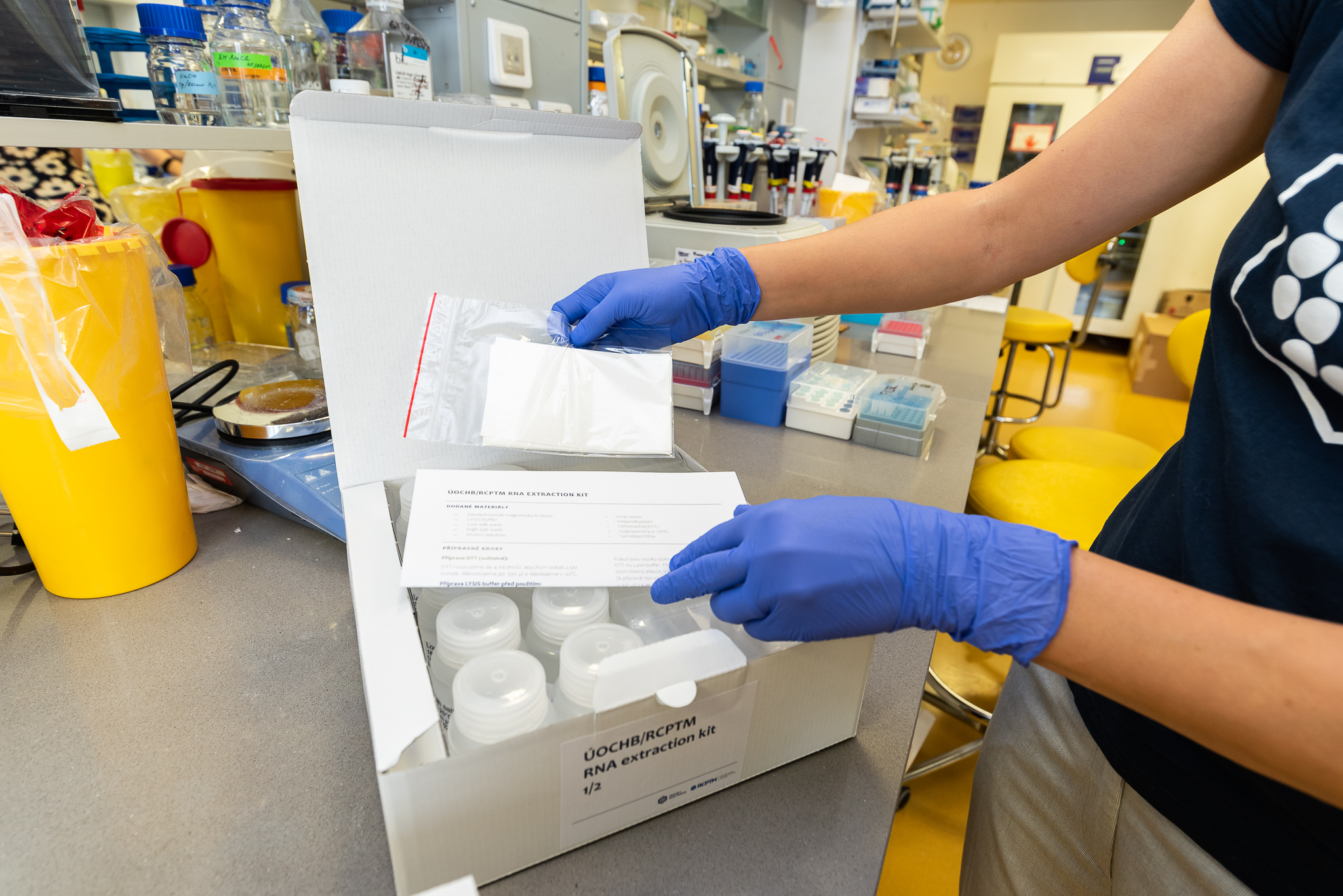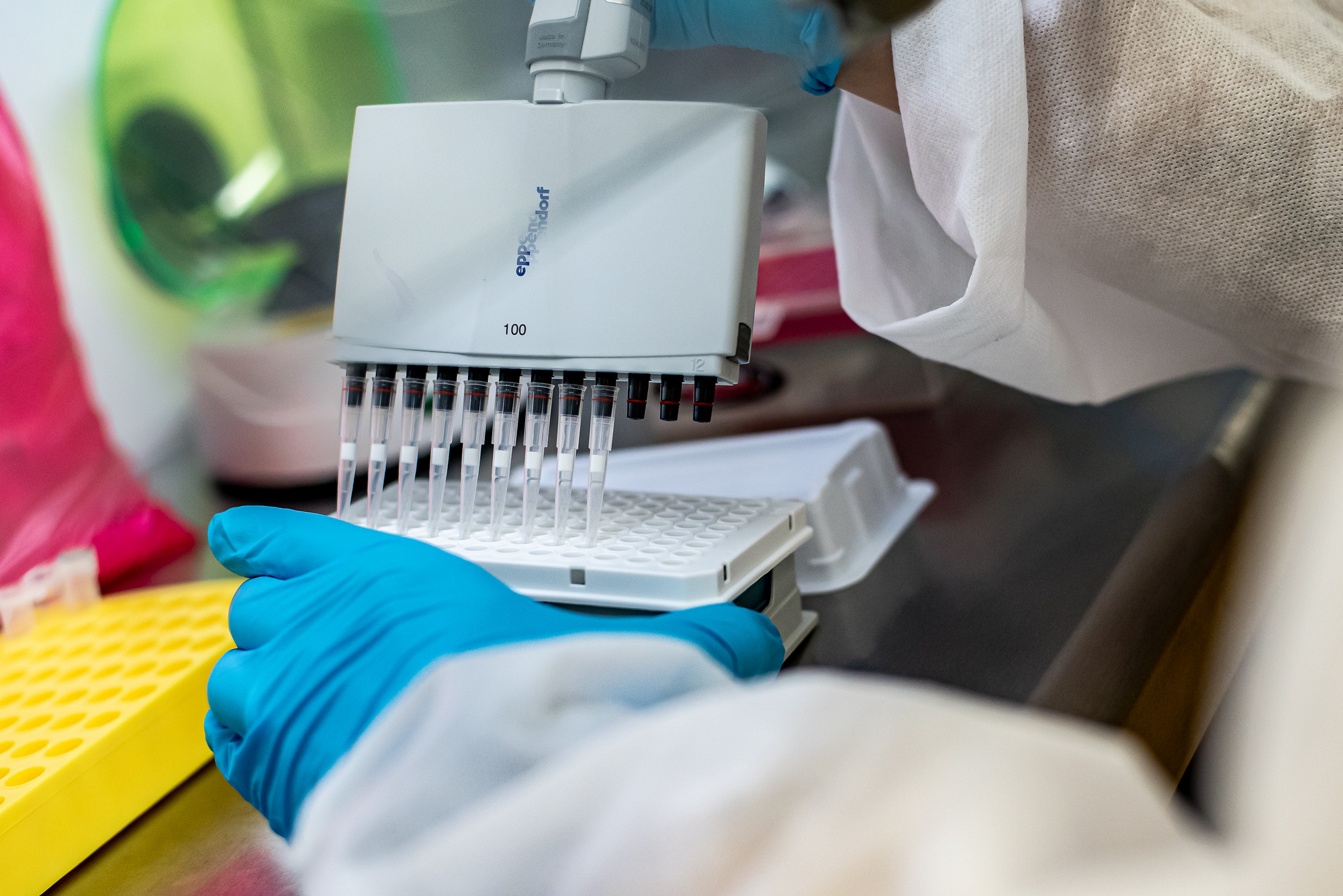IOCB / RCPTM viral RNA isolation kits successfully tested on thousands of samples
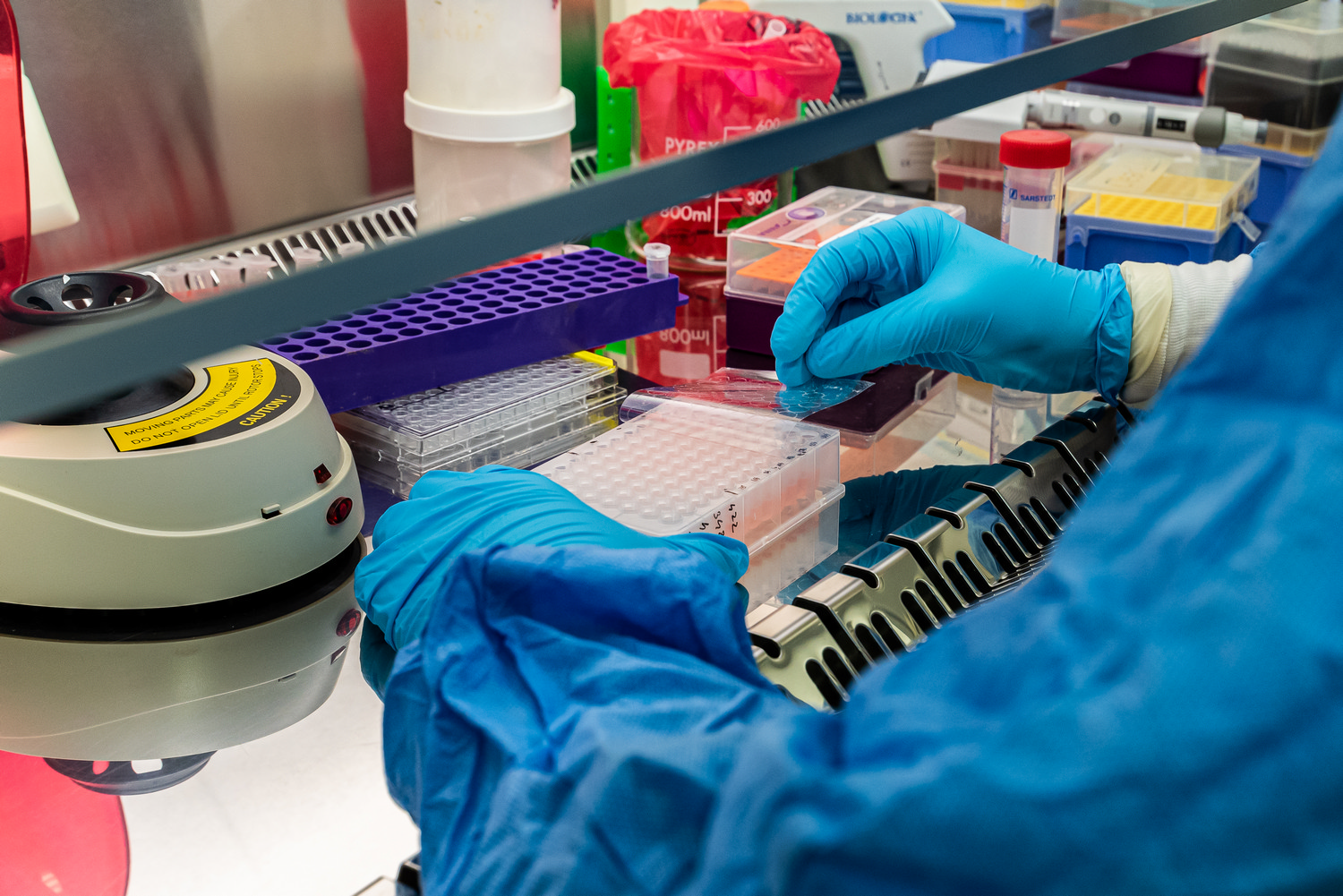
Working with researchers from the Regional Centre of Advanced Technologies and Materials (RCPTM) at Palacký University and a number of other centers, a team of researchers headed by Pavel Šácha of IOCB’s Jan Konvalinka Group has developed a new method for isolating viral RNA independent of commercially available materials. The researchers optimized the method for laboratory automation in clinical practice, making it possible to isolate nearly a hundred samples at once, and they successfully tested it in collaboration with the Public Health Institute in Ostrava.
Extensive collaboration
The COVID-19 crisis has brought about a dramatic global increase in demand for key components of patient sample testing, which has led to shortages. Due to the acute risk of a shortage of RNA isolation kits, which would significantly limit the testing of patients in the Czech Republic, and based on information from Motol University Hospital, researchers on Pavel Šácha’s team decided to develop new kits using available domestic materials. They set to work in the middle of March and produced the first new kits within only three weeks.
The kits were developed in collaboration between Pavel Šácha, František Sedlák, and Robin Kryštůfek, with Kristýna Blažková overseeing logistics and kit preparation. Furthermore, development and subsequent testing and method validation were supported by numerous colleagues from the Jan Weber Group and others at IOCB as well as researchers from RCPTM, the Institute of Macromolecular Chemistry of the Czech Academy of Sciences (IMC), the University of Chemistry and Technology, the Institute of Molecular Genetics of the Czech Academy of Sciences, the Institute of Experimental Botany of the Czech Academy of Sciences, the BIOCEV and CEITEC research centers, and the clinical laboratories of Motol University Hospital, Bulovka University Hospital, and the National Institute of Public Health.
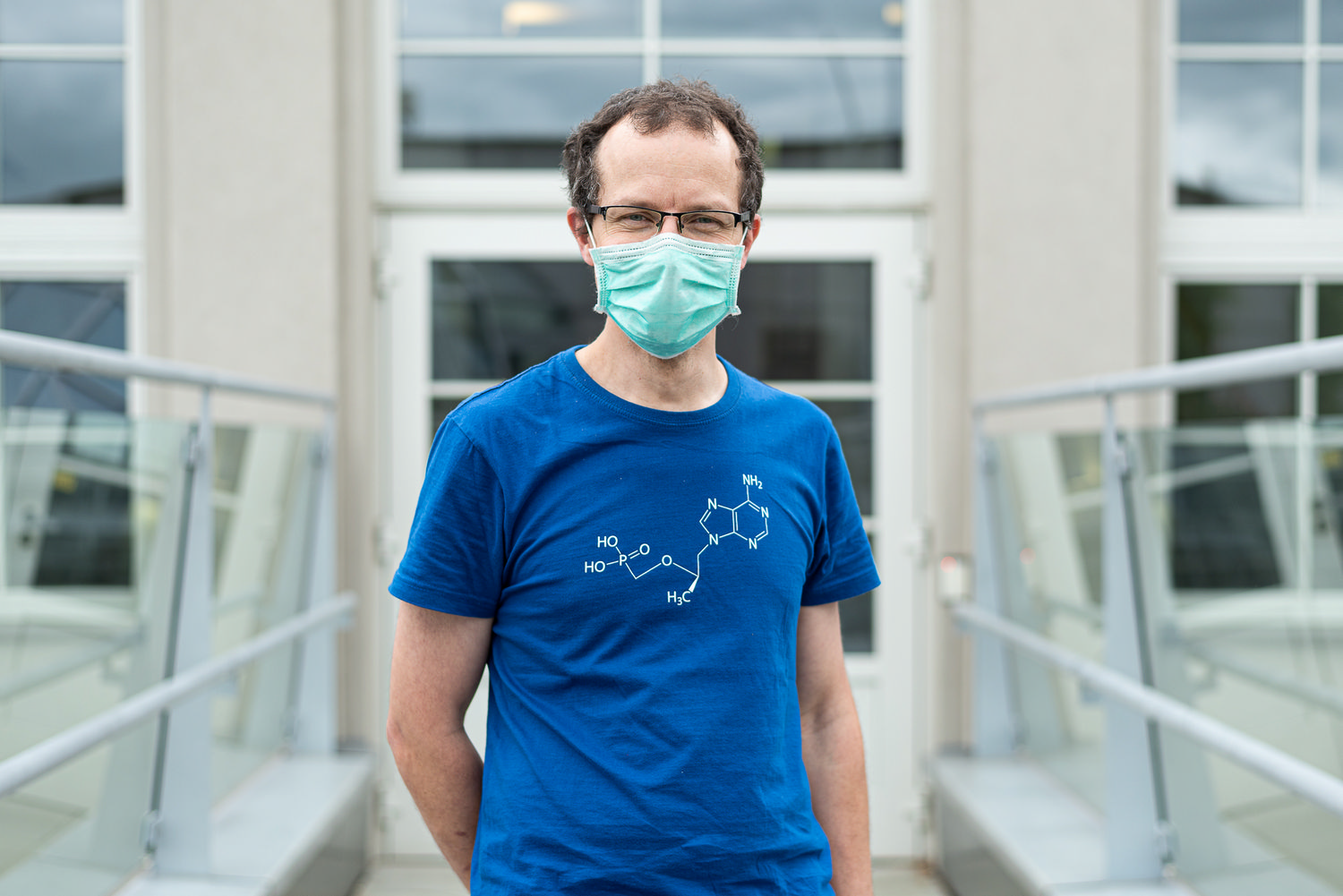
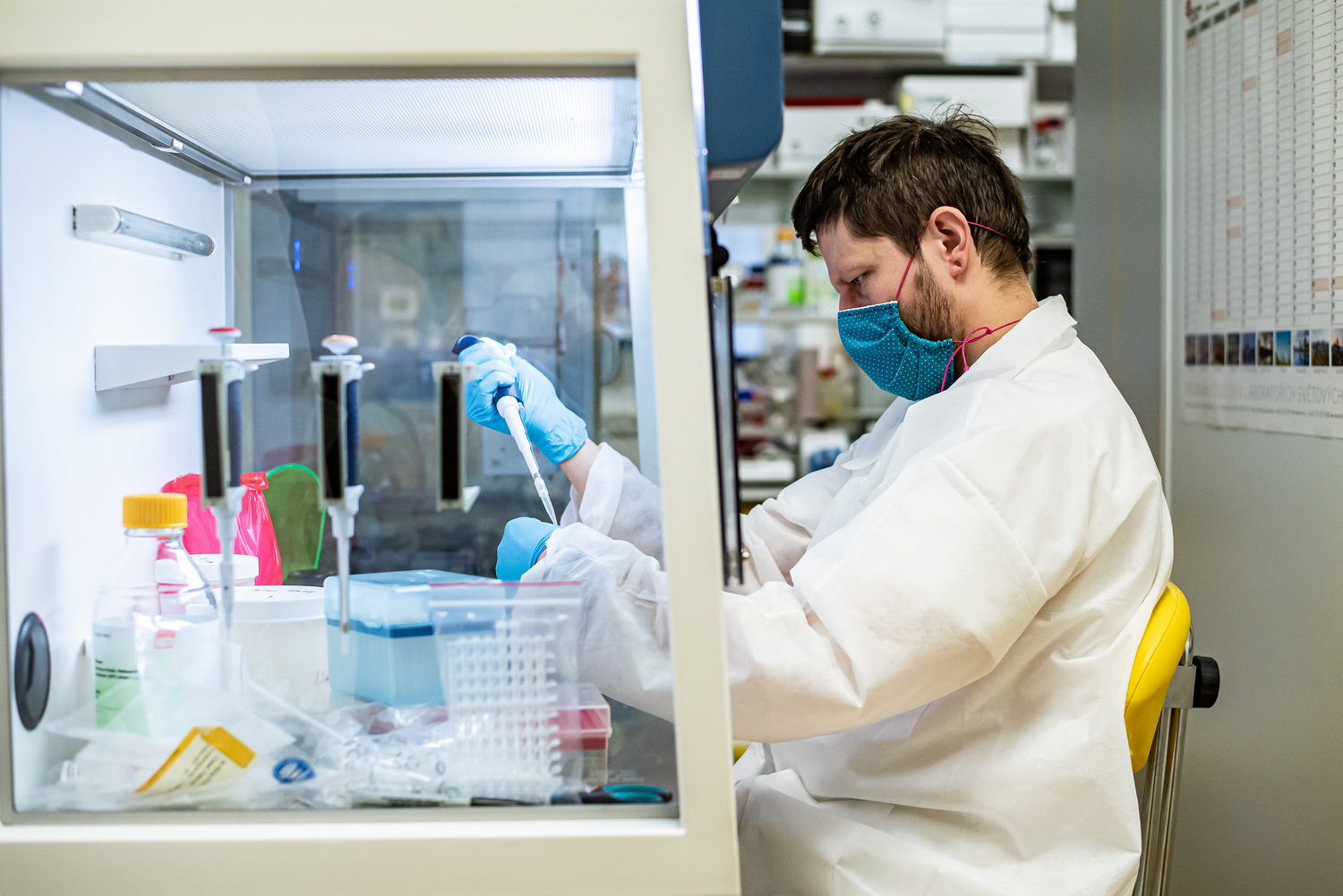
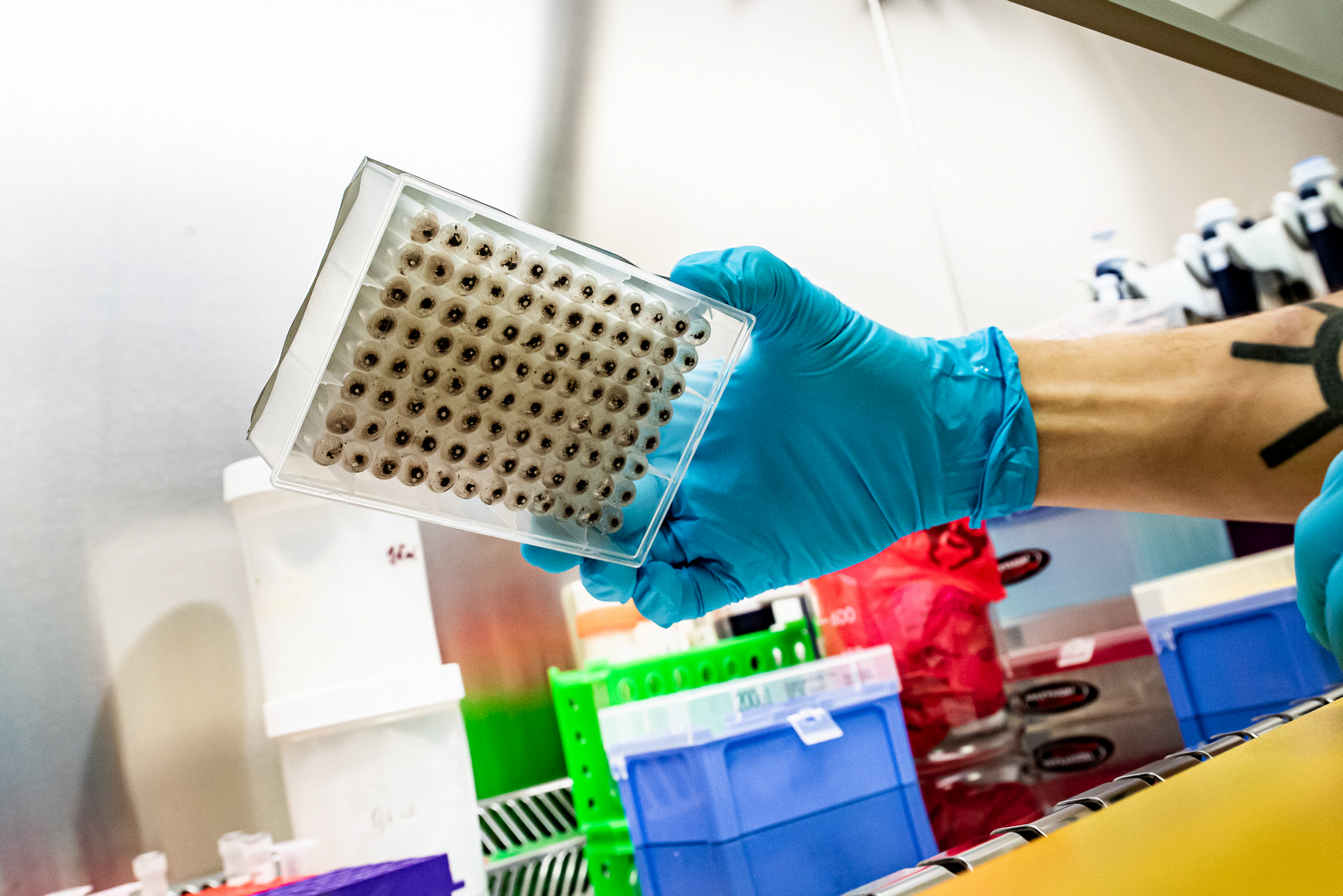
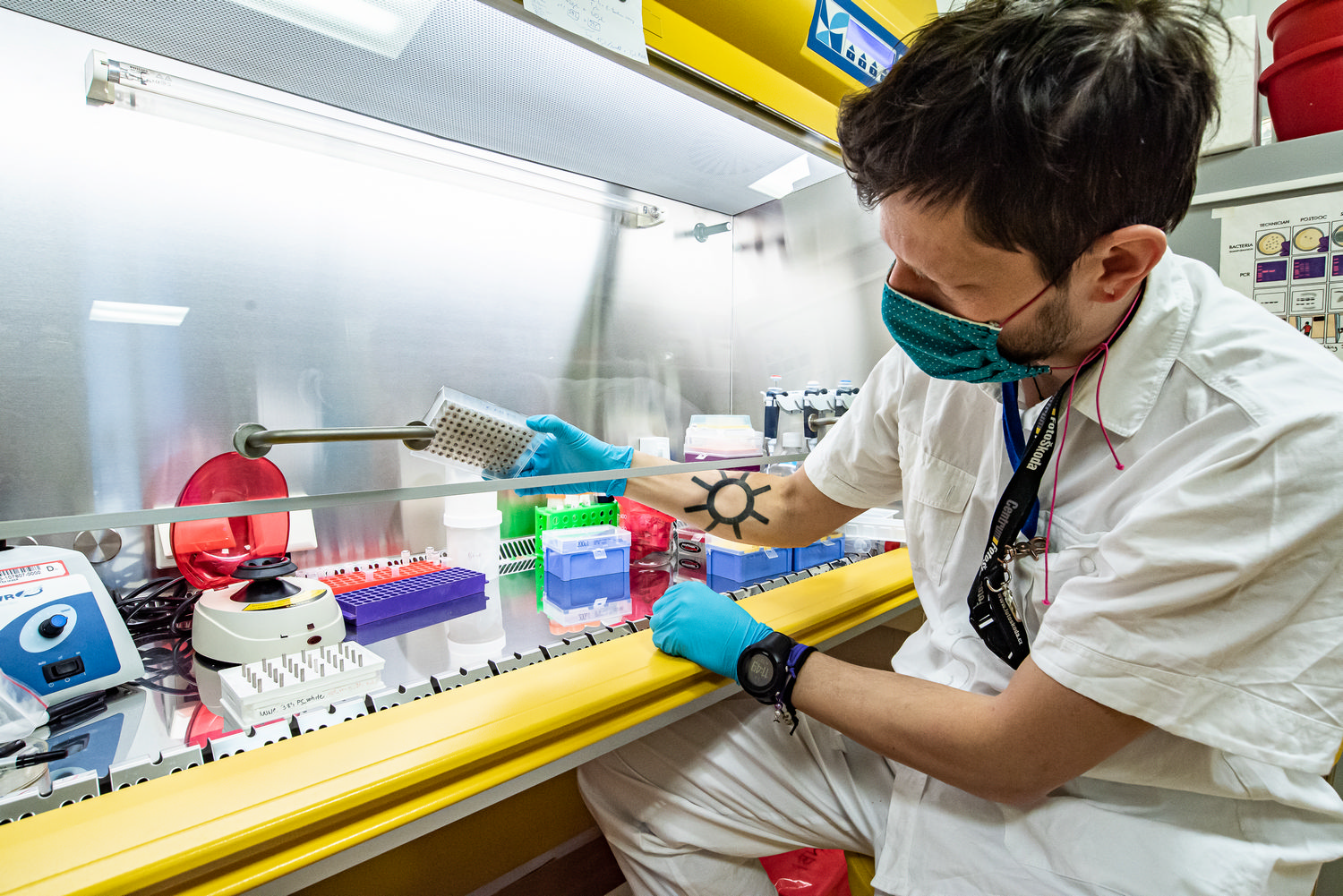
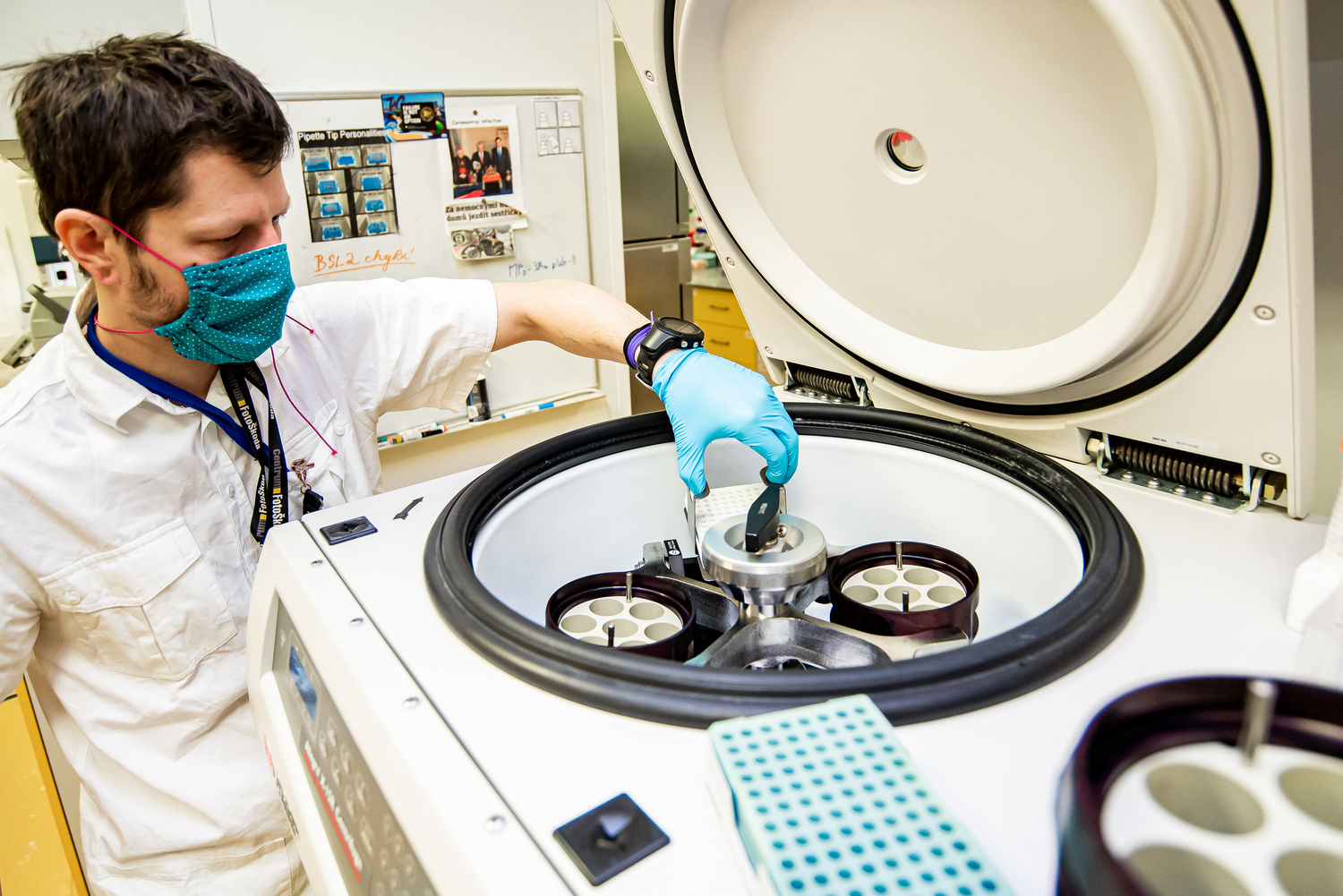
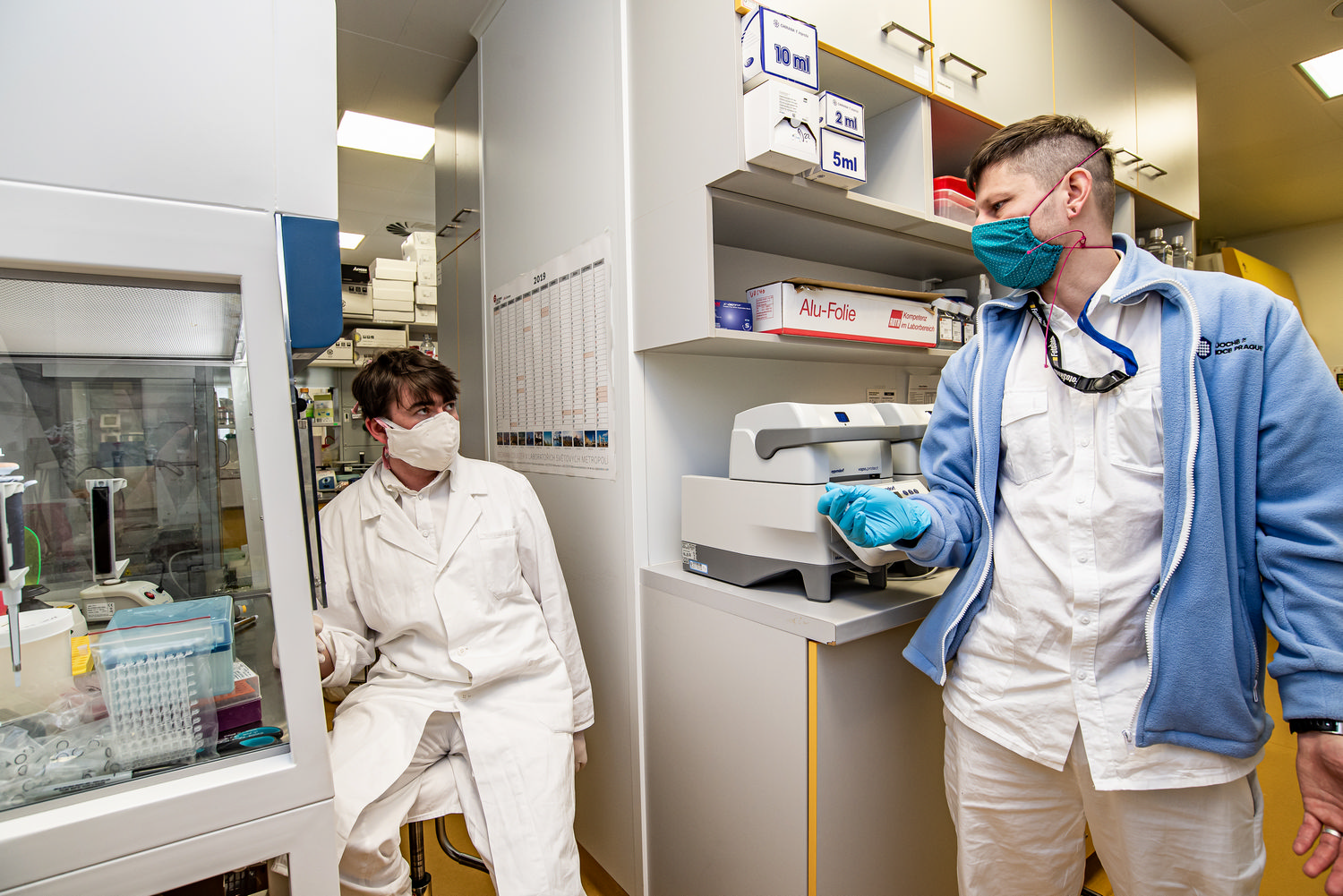
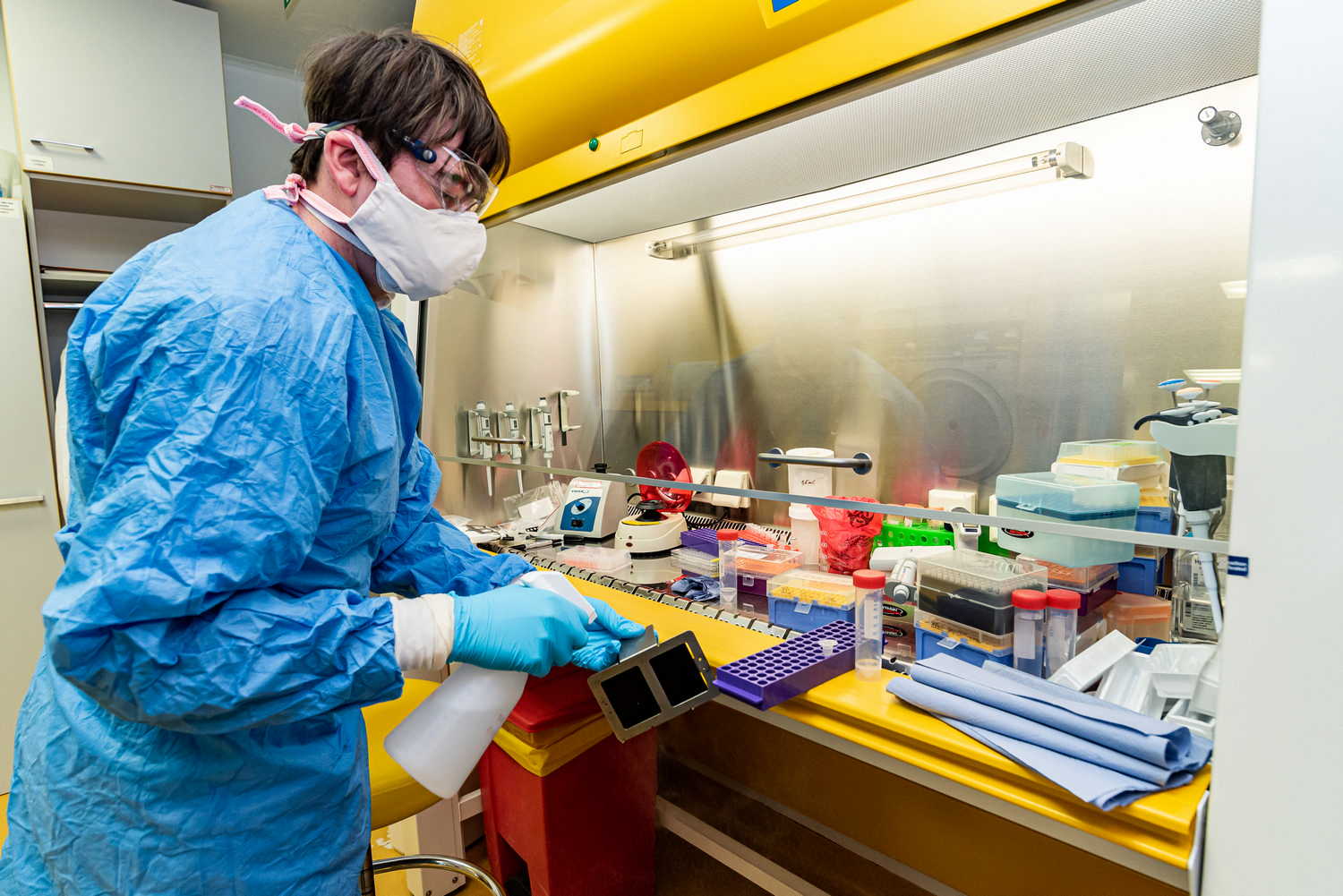
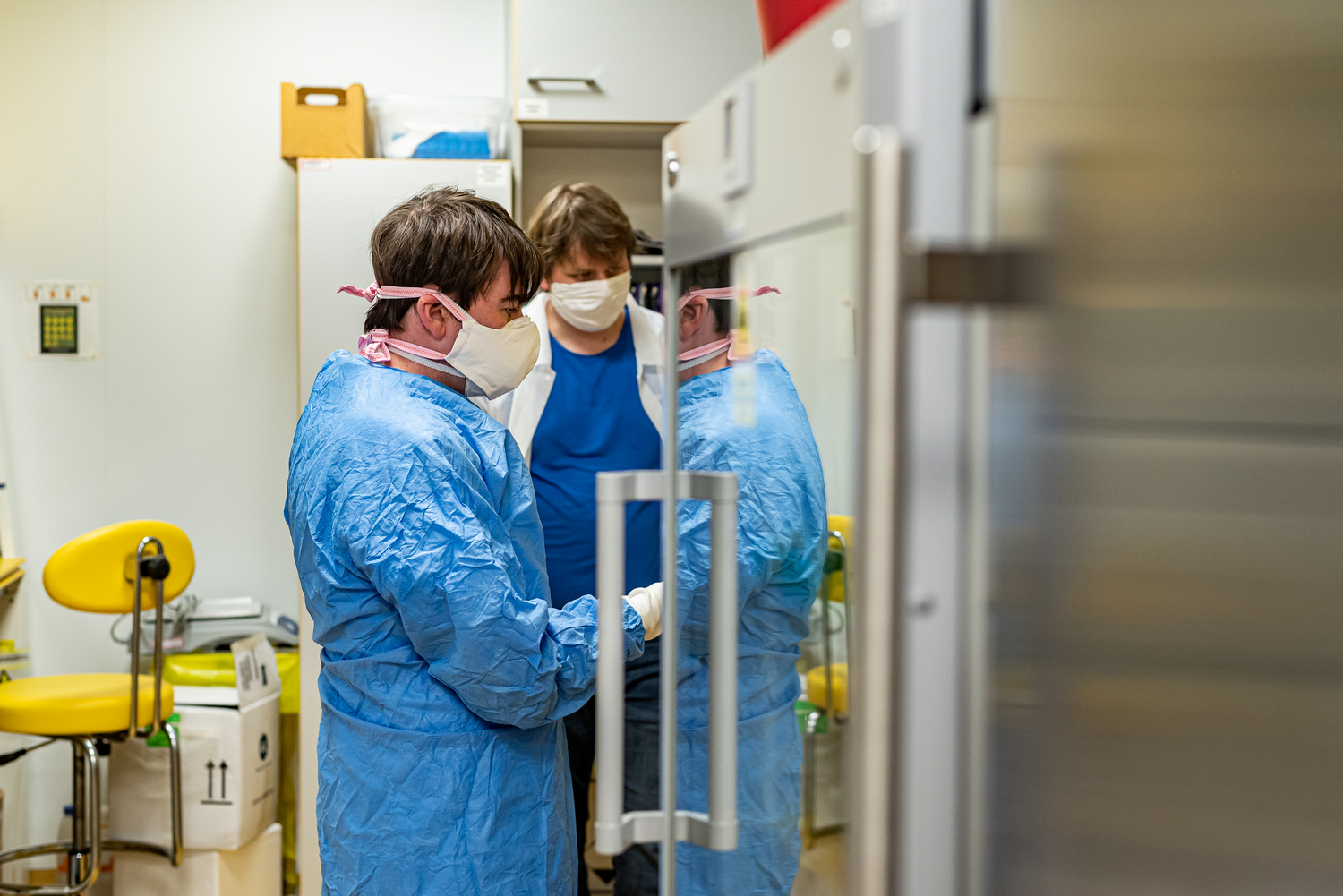
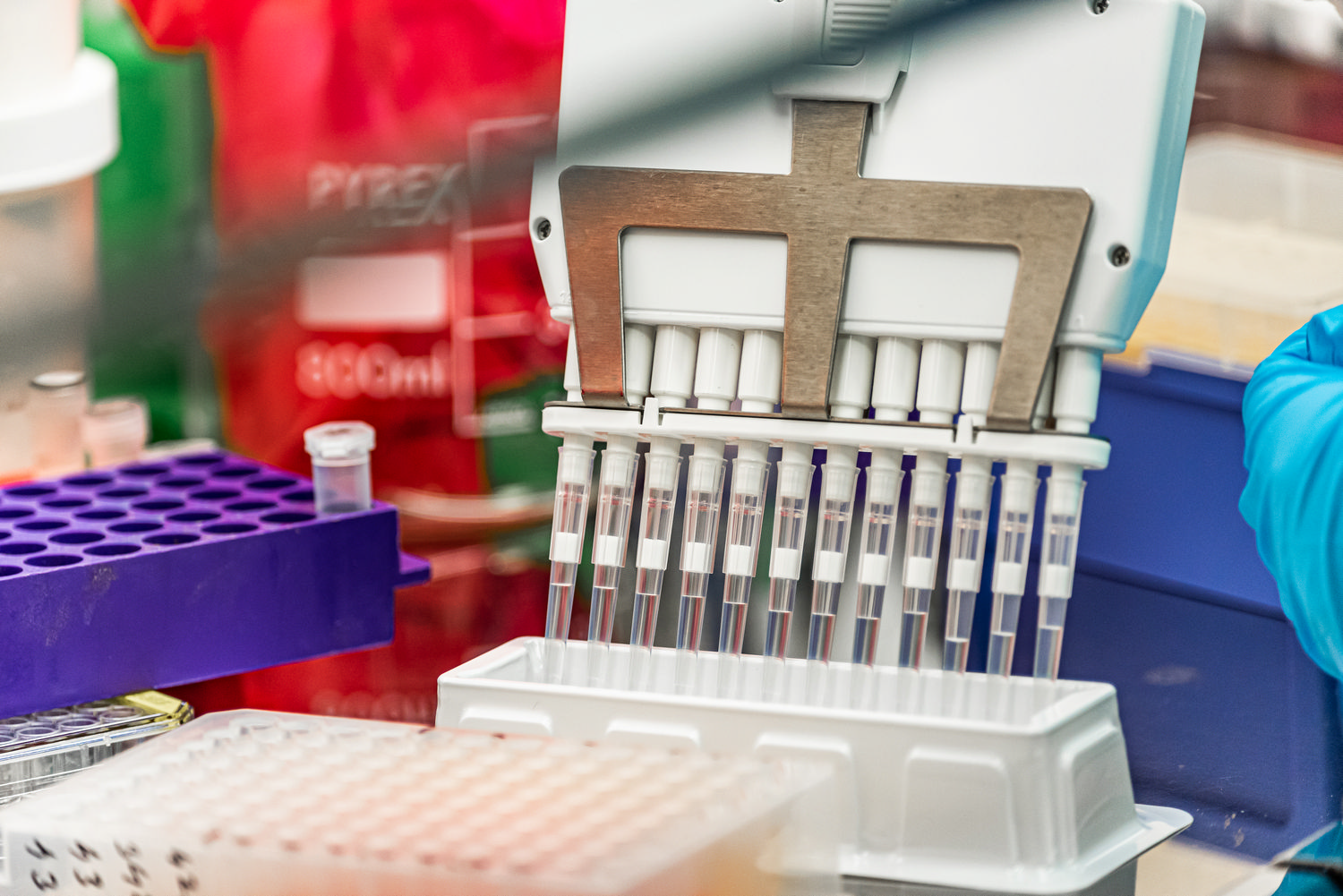
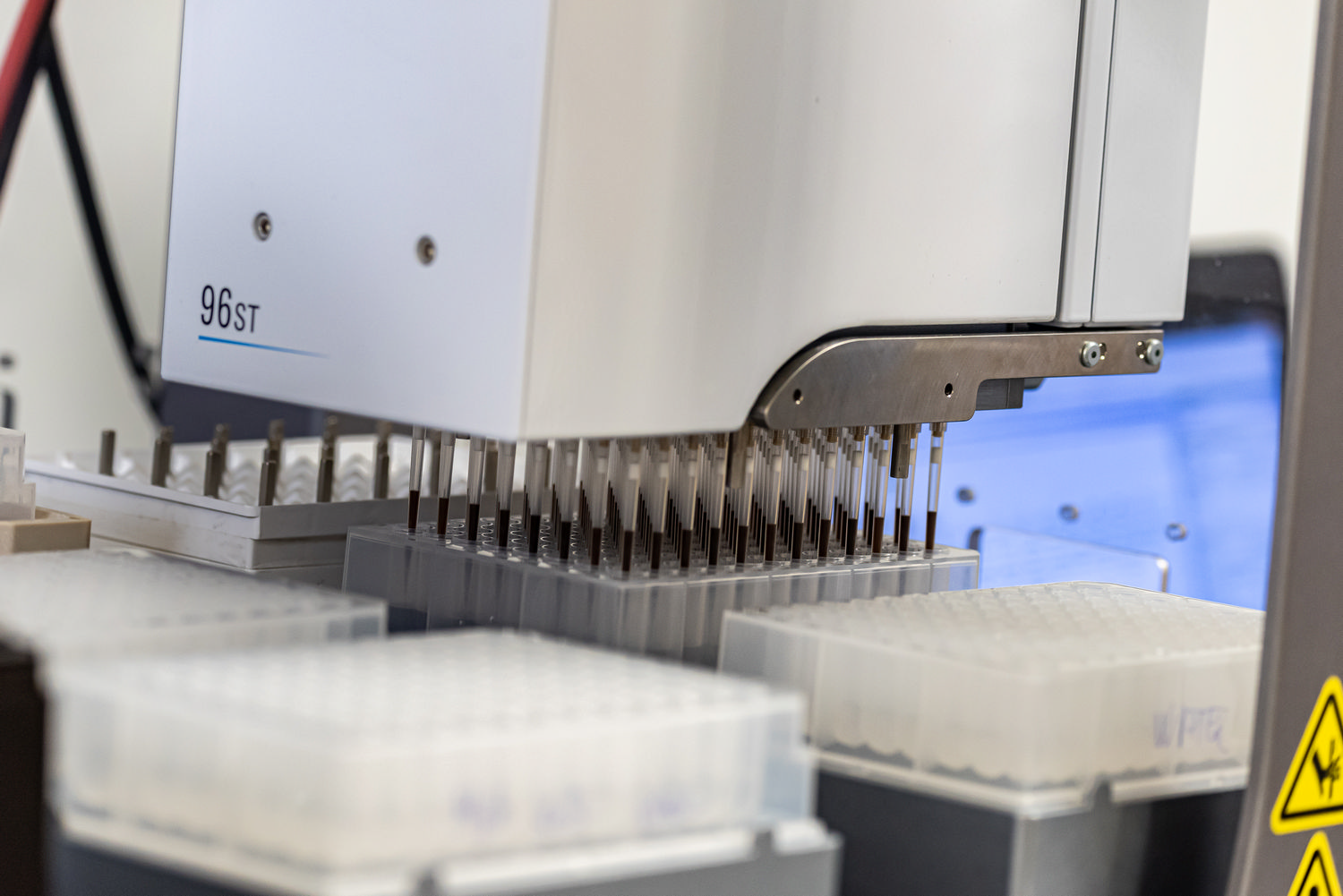
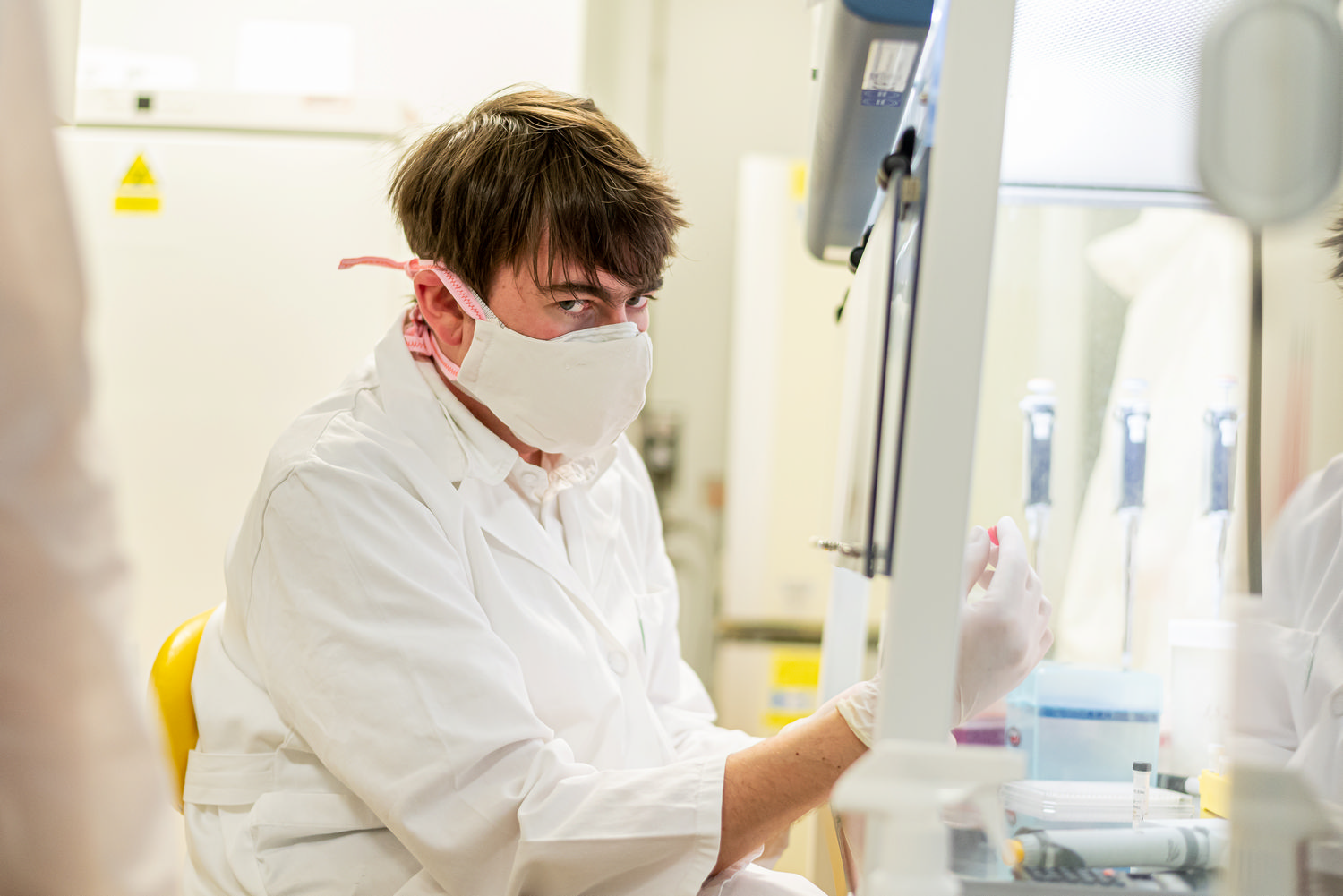
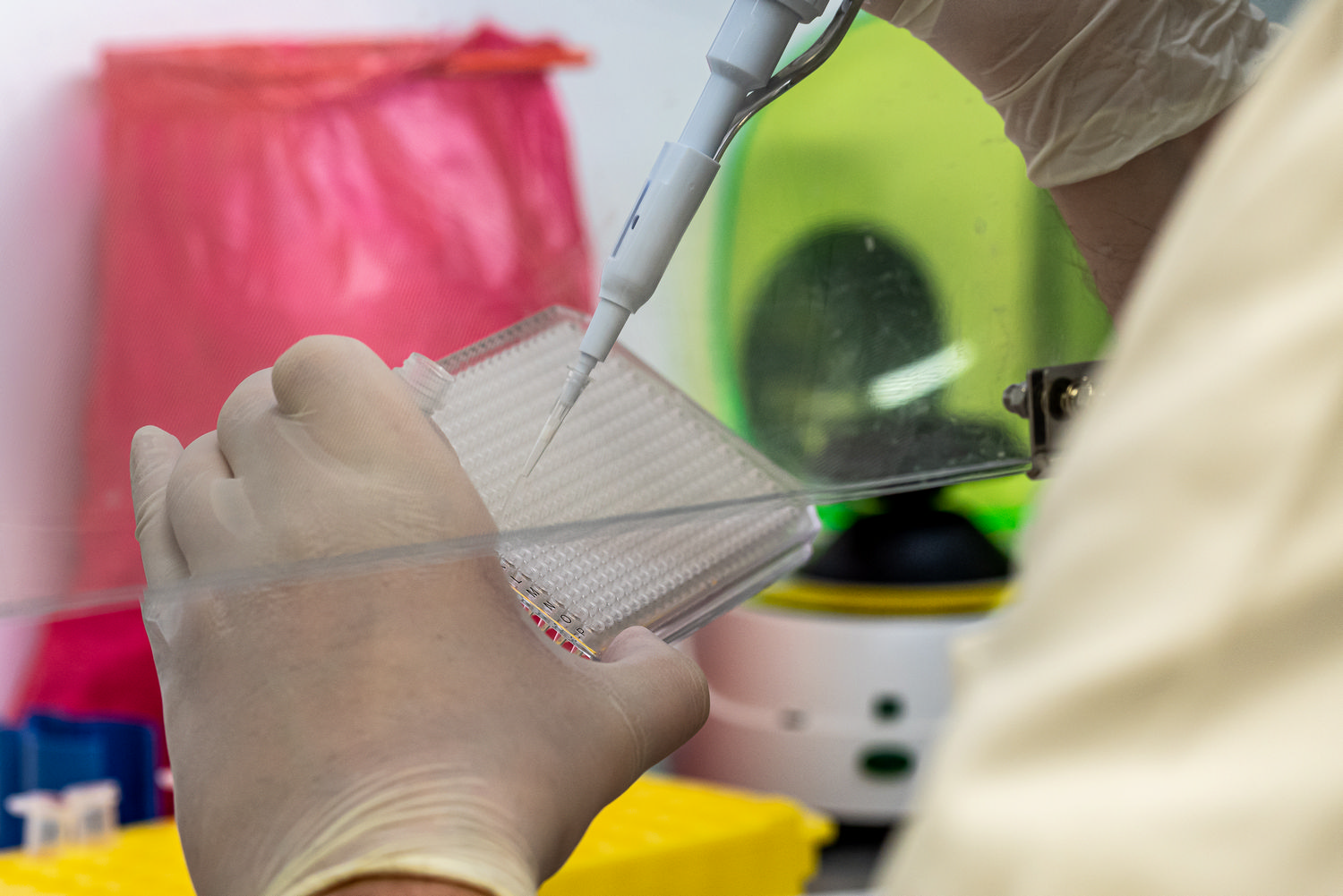
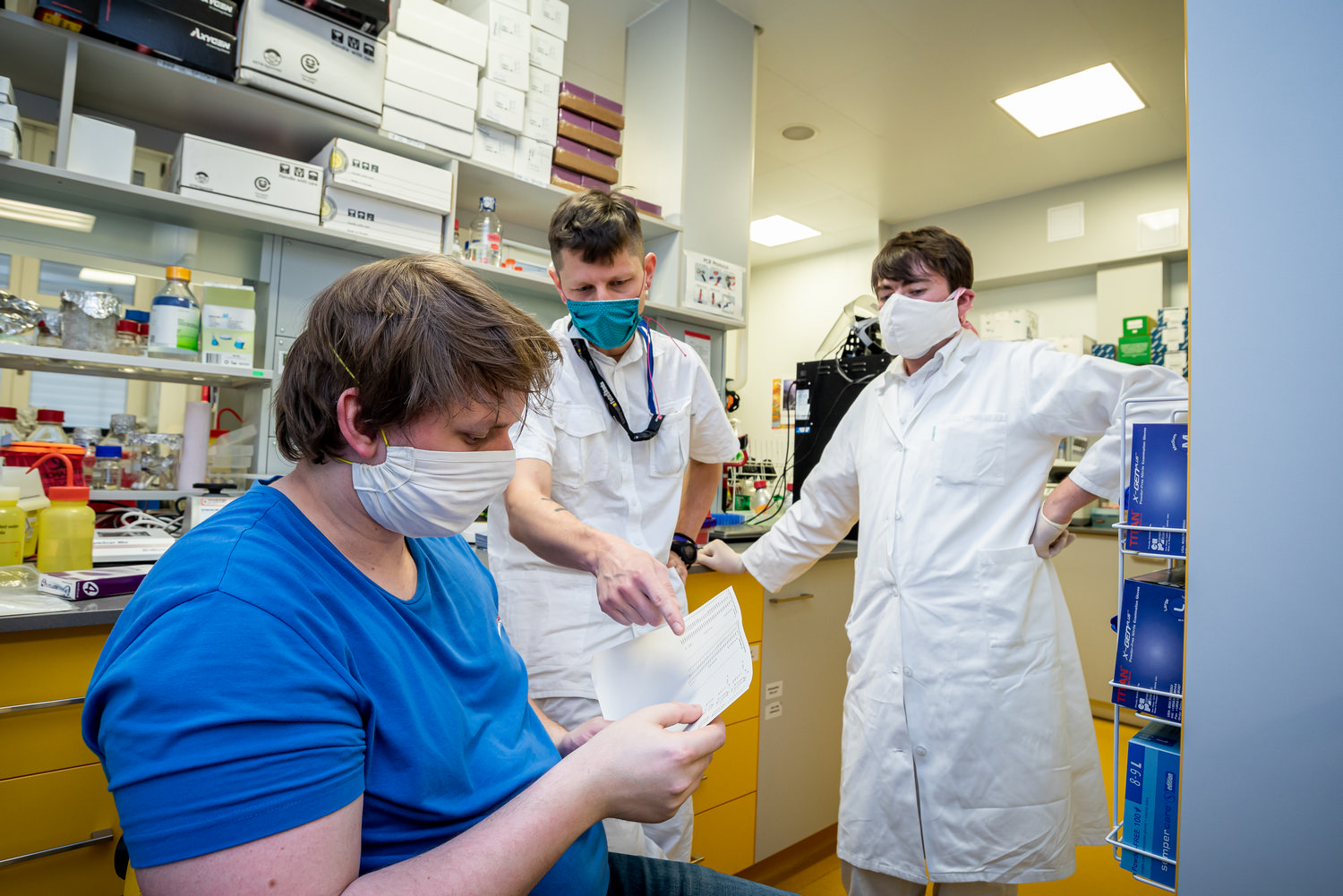
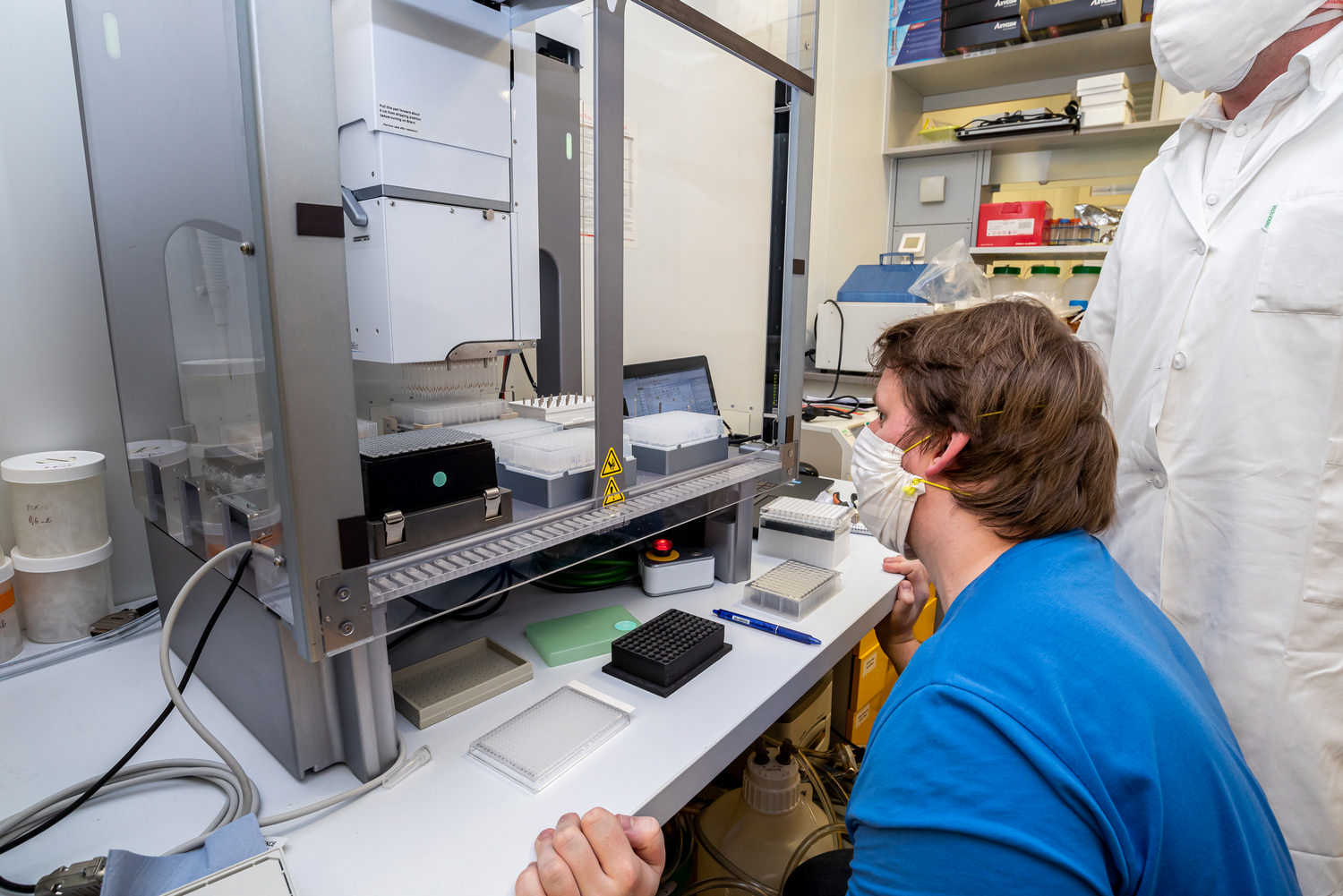
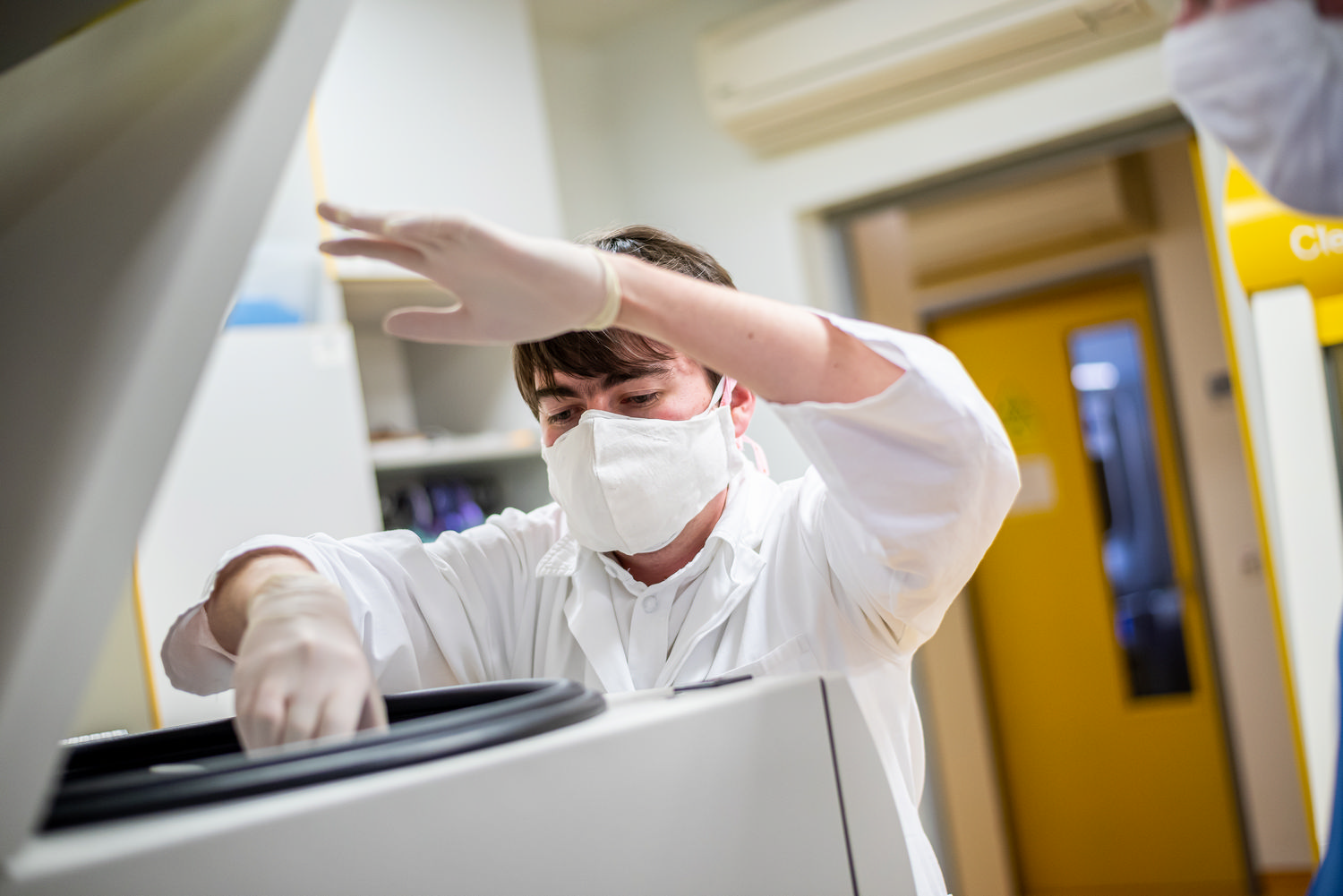
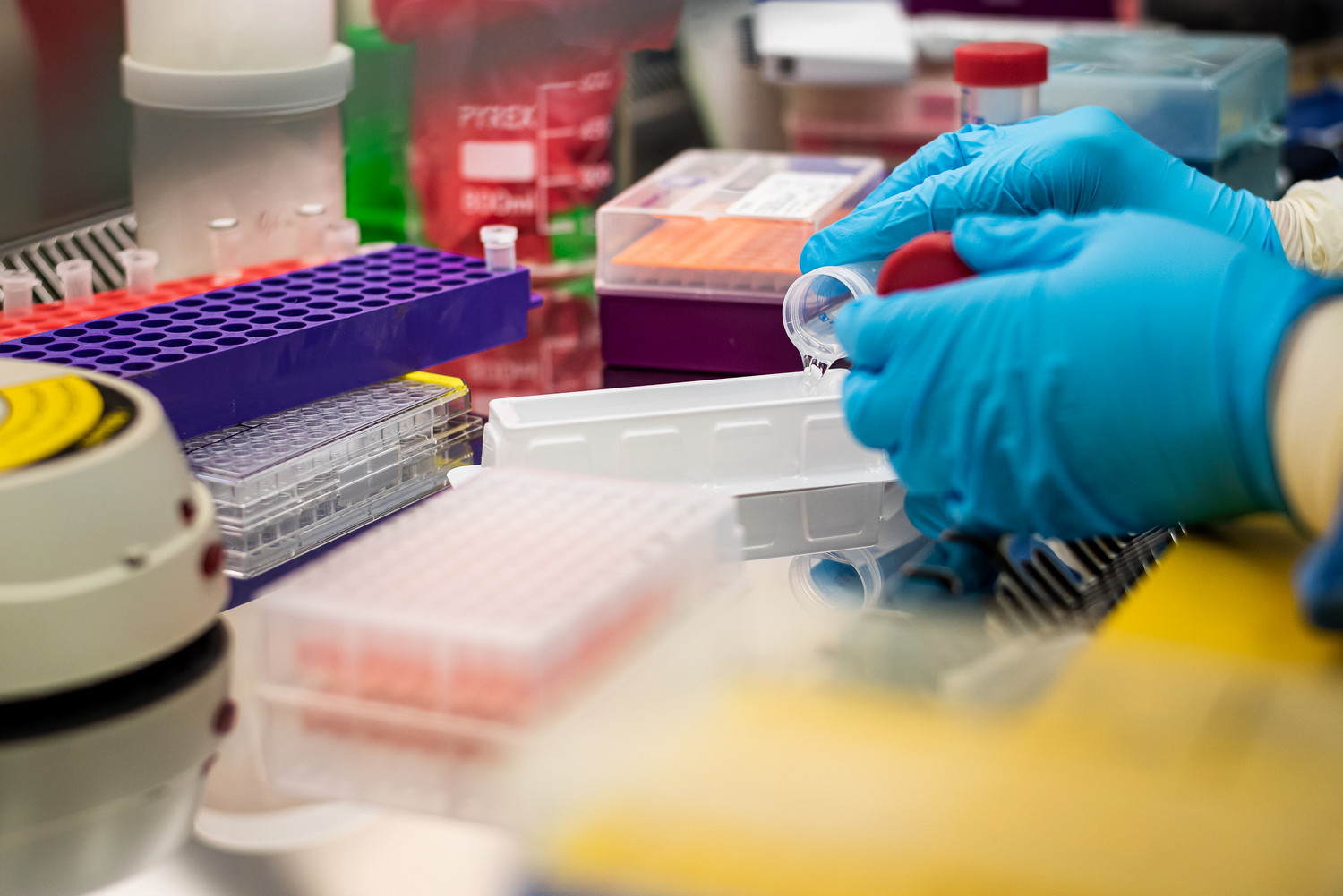
Solutions and magnetic nanoballs
A key component of the new kits are silica-coated magnetic nanoballs (read more about these nanoparticles here) from the laboratory of Radek Zbořil of RCPTM, which demonstrated the best properties of all the nanoballs tested and could be produced in quantities sufficient for the preparation of hundreds of thousands of kits.
The newly developed isolation kits contain several solutions, 96-well sample plates, and a magnetic stand developed at the IOCB Development Center. The first solution is used for extracting viral RNA from the cells in the samples; the second solution comprises a suspension of magnetic nanoballs; the third solution serves for precipitation of the viral RNA on the surface of the nanoballs; the fourth solution is for washing the magnetic nanoballs and separating the viral RNA; and the last is an elution solution containing the isolated and diluted RNA prepared for quantitative PCR analysis.
50 thousand isolations
As early as during the development and validation of the testing kit in clinical laboratories, the team focused on optimizing the method for the automated isolation of 96 samples simultaneously. One of the greatest obstacles was presented by proprietary laboratory instruments, the manufacturers of which, with exceptions, chose not to open their machines for use with non-original kits. Thus, the team focused on optimization on open platforms independent of specific kit producers, which they achieved in close collaboration with colleagues from Czech Technical University, Motol University Hospital, Bulovka University Hospital, the National Institute of Public Health, and others.
To verify the reliability of kits, the team partnered with the Public Health Institute in Ostrava, which received kits for ten thousand isolations and has been using them successfully.
In total, the team produced kits for fifty thousand isolations, which it sent to dozens of laboratories throughout the Czech Republic, thus helping to overcome the most difficult period of critical shortages in the supply of commercial kits.
Currently, production is being transferred to IOCB subsidiary IOCB Tech, which will oversee distribution in the Czech Republic and Slovakia. IOCB is also conducting licensing negotiations with potential producers.




